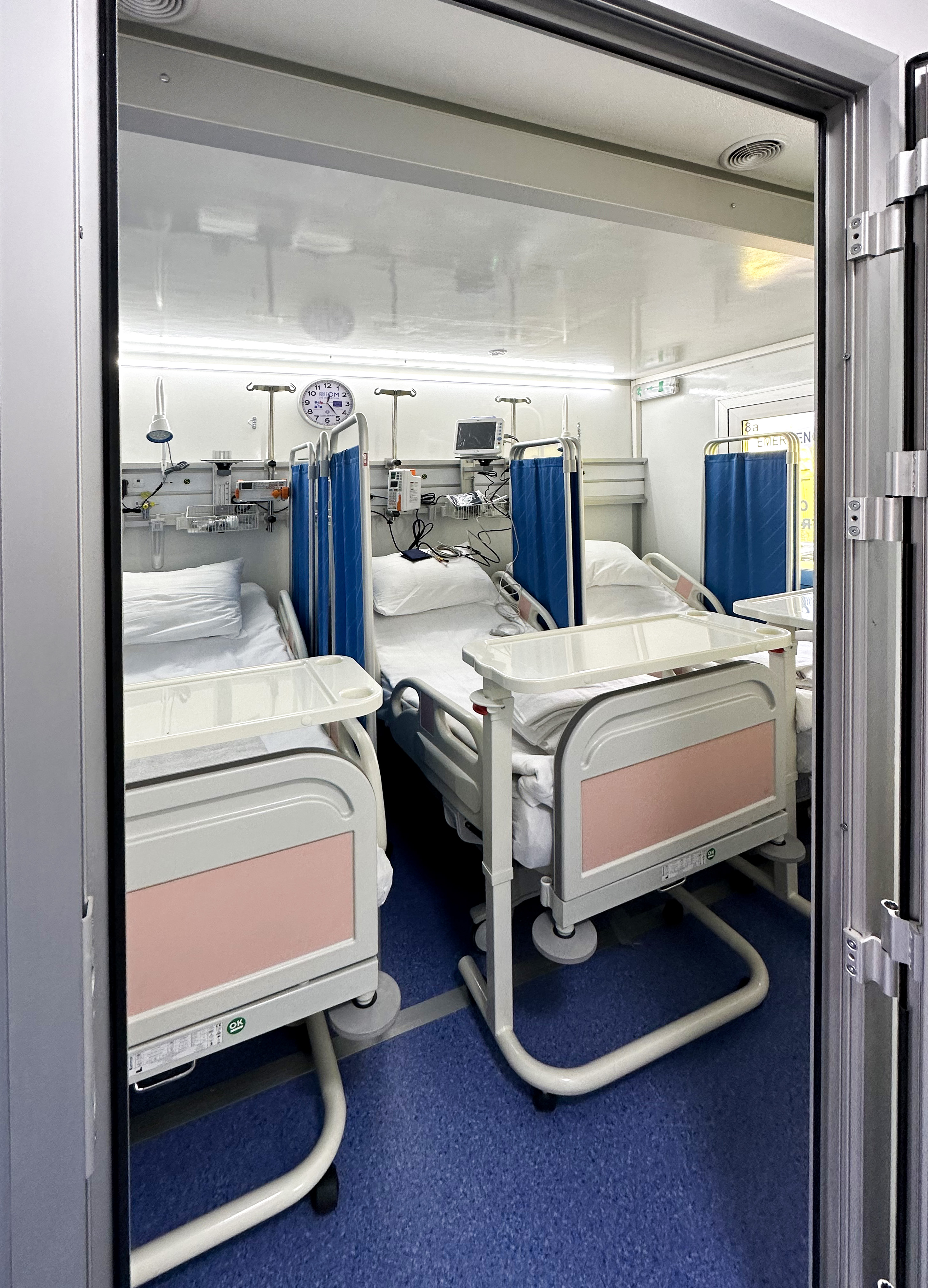-
Who We Are
WHO WE AREIOM is the leading inter-governmental organization promoting humane and orderly migration for the benefit of all, with presence in over 100 countries. Greece is a founding member of IOM.
About
About
IOM Global
IOM Global
-
Our Work
Our WorkAs the leading inter-governmental organization promoting since 1951 humane and orderly migration, IOM plays a key role to support the achievement of the 2030 Agenda through different areas of intervention that connect both humanitarian assistance and sustainable development. Across Greece, IOM provides a comprehensive response to the humanitarian needs of migrants, internally displaced persons, returnees and host communities.
Cross-cutting (Global)
Cross-cutting (Global)
- Data and Resources
- Take Action
- 2030 Agenda
IOM supports the Greek National Health System’s preparedness and migrants’ access to health services
Athens – The International Organization for Migration (IOM), in coordination with the Ministry of Health (MoH) and the Ministry of Migration and Asylum (MoMA) in Greece, and with funding from the European Union (EU), supported the Greek government to strengthen national health services.
From April 2021 to February 2023, the IOM support contributed to enhance the national health system preparedness with the provision of medical equipment and supplies and provided support to medical personnel deployed across the country, including in migrant communities.
As part of this intervention, IOM provided medical equipment and supplies to Greek public hospitals, primary health care facilities, and migrant Reception and Identification Centers (RICs) including eight new mobile medical units fully equipped with a microbiological clinic, radiological unit, consultation rooms and a four-bed capacity hospitalization room each. This equipment will facilitate access to health services for migrants staying in reception facilities on the mainland.
“Thanks to our strong partnership with the International Organization for Migration, much needed equipment assisted the Greek health system in managing the COVID 19 pandemic. The Emergency Support Instrument provided funding at a time when the COVID 19 virus disproportionately affected vulnerable communities. This additional support helped Greek authorities to better safeguard people residing in reception centers as well as relieved pressure on existing healthcare services”, said Monique Pariat, Director-General of the Directorate-General Migration and Home Affairs.
“The funding helped minimize the risk of infection, reinforced medical equipment in public hospitals, assisted authorities in carrying out health checks and provide primary medical assistance, and finally provided mobile and modular medical clinics, isolation and quarantine units in migrant reception facilities”, she added.

In close coordination and technical guidance of the MoH, IOM supplied Greek public hospitals, primary health facilities and RICs across the country with:
- 106 Intensive Care Unit (ICU) beds
- 83 portable x-ray machines
- 205 laryngoscopes
- 205 mechanical ventilators
- 140 ICU monitors
- 112 video laryngoscopes
- 145 multiparameter patient monitors
- 824 pulse oximeters
- 272 monitors for medical equipment
“The support of the European Union has been fundamental in alleviating the pressure on the Greek National Health System following the outbreak of the COVID-19 pandemic,” said Gianluca Rocco, Chief of IOM Mission in Greece. “Despite challenges, we worked together with all relevant actors to enhance public health facilities for the benefit of local communities and migrants alike. We are pleased to have delivered essential medical equipment and supplies to Greek health facilities across the country. Equal access to health services is a fundamental right for everyone”.

The procurement of mobile units, medical equipment and supplies in Greece was made possible through the ESI project (Enhancing the health system’s response to COVID-19 in accommodation structures for migrants and unaccompanied migrant children and in COVID-19 referral hospitals and primary health centers in areas with large migrant populations), implemented by IOM with funding from the EU, through the European Commission’s Directorate General for Migration and Home Affairs (DG HOME).
